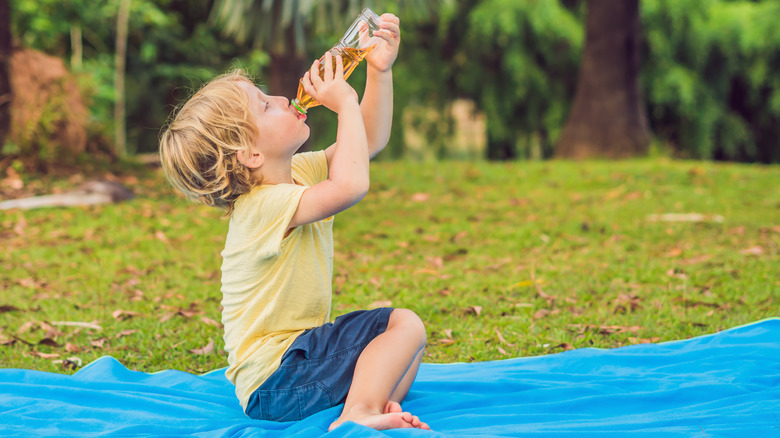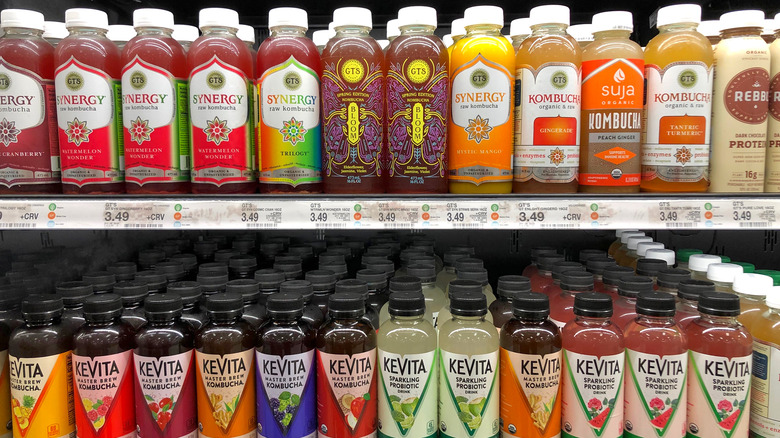What To Know Before Letting Your Kids Try Kombucha
If you're a fan of kombucha, you may remember that day back around 2011 when you went to purchase a bottle, and the cashier asked to see your driver's license to check that you were 21. Or perhaps you noticed the black warning label sealing the cap before you even got in line. Since when did your favorite health drink come with a hangover (via Forbes)?
A fancy name for fermented tea, kombucha has been around for thousands of years with a whole host of health benefits attributed to the bubbly libation, including offering a good source of probiotics and antioxidants. The fermentation process, typically about a week or more, creates carbonation in addition to trace amounts of alcohol (via Healthline).
While your average-sized adult may get more of a buzz from a shot of vinegar, what about our tiny tots? Are they in danger when they imbibe in the fizzy beverage?
Stick with store bought and read labels
If you've been giving your child kombucha as a healthy alternative over soda, you can relax — odds are you have not been doing any harm. However, there are a few guidelines to keep in mind moving forward.
When it comes to the alcohol content, sticking with store-bought is the best way to ensure the little ones don't start dancing on tables. It is safe to consume for children over the age of four (via PubMed). The commercial kombucha on shelves has been properly prepared and stored, which halts the fermentation process below the legal alcohol content limit of 0.5%. Anything above that is regulated as an alcoholic beverage and will have a label and require age verification to purchase (via Alcohol and Tobacco Tax and Trade Bureau).
Another aspect to keep in mind is the sugar content of kombucha. Many commercial varieties contain added cane sugar or fruit juice. As a result, one serving may contain up to 28 grams of sugar, which already surpasses the American Heart Association's recommended daily allowance of 25 grams for children under the age of 18.
Bottom line — err on the side of caution. Don't start a science experiment in your kitchen and make your own kombucha for your kids. Kombucha may also contain some caffeine depending on the tea used to make it, so label reading and doing your due diligence is your best bet (via MindBodyGreen).

